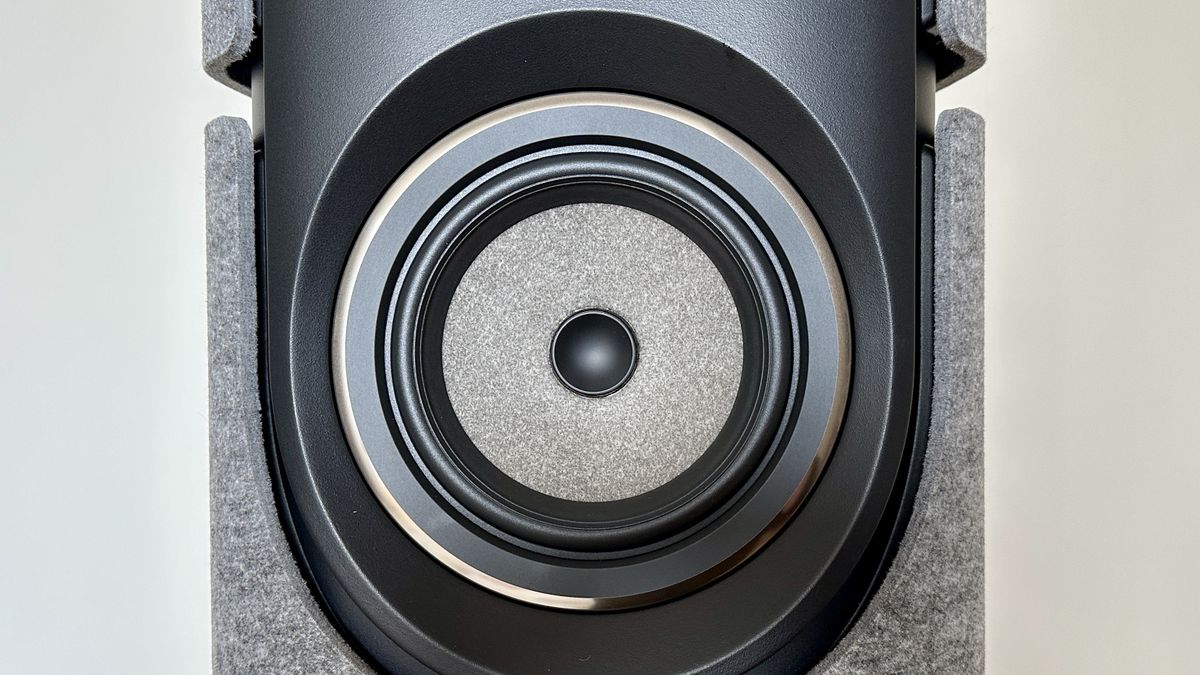Focal Diva Utopia: Two-minute review
Let’s be polite in our choice of word, shall we, and describe an asking price of $39,999 / £29,999 / AU$59,999 for a pair of wireless active speakers as ‘punchy’? Focal has leveraged both its own long-established expertise (and that of its sister company Naim) and spent five years developing what the asking price insists must be the most accomplished, least compromised wireless music streaming system you can buy.
Certainly it looks the part, as long as you consider ‘the part’ to mean ‘striking and dramatic’. The quality of construction is unarguable, and the finish is currently unique in the world of loudspeakers. There are numerous control options, all of them expertly implemented. And it’s specified without apparent compromise, to the point that it’s ready to do unashamedly high-performance things to all your favourite music no matter where it’s stored.
When it comes to performance, there’s virtually nothing to take issue with. As long as your room is large enough for the Diva Utopia to stretch out and properly express itself, it will reward you with a sound that combines muscularity, insight, scale and attack with the sort of deft manoeuvrability and rhythmic positivity that makes every listen an event. It’s a staggeringly accomplished system with a list of talents as long as your arm – which, in the context of the asking price, is exactly as it should be.
Will they enter our best stereo speakers roundup very soon? That’s hardly fair since most products within our guide are a mere fraction of the Diva Utopia’s asking fee. That said, if you’ve got this kind of money, they’re well worth it, and we never make such statements glibly.
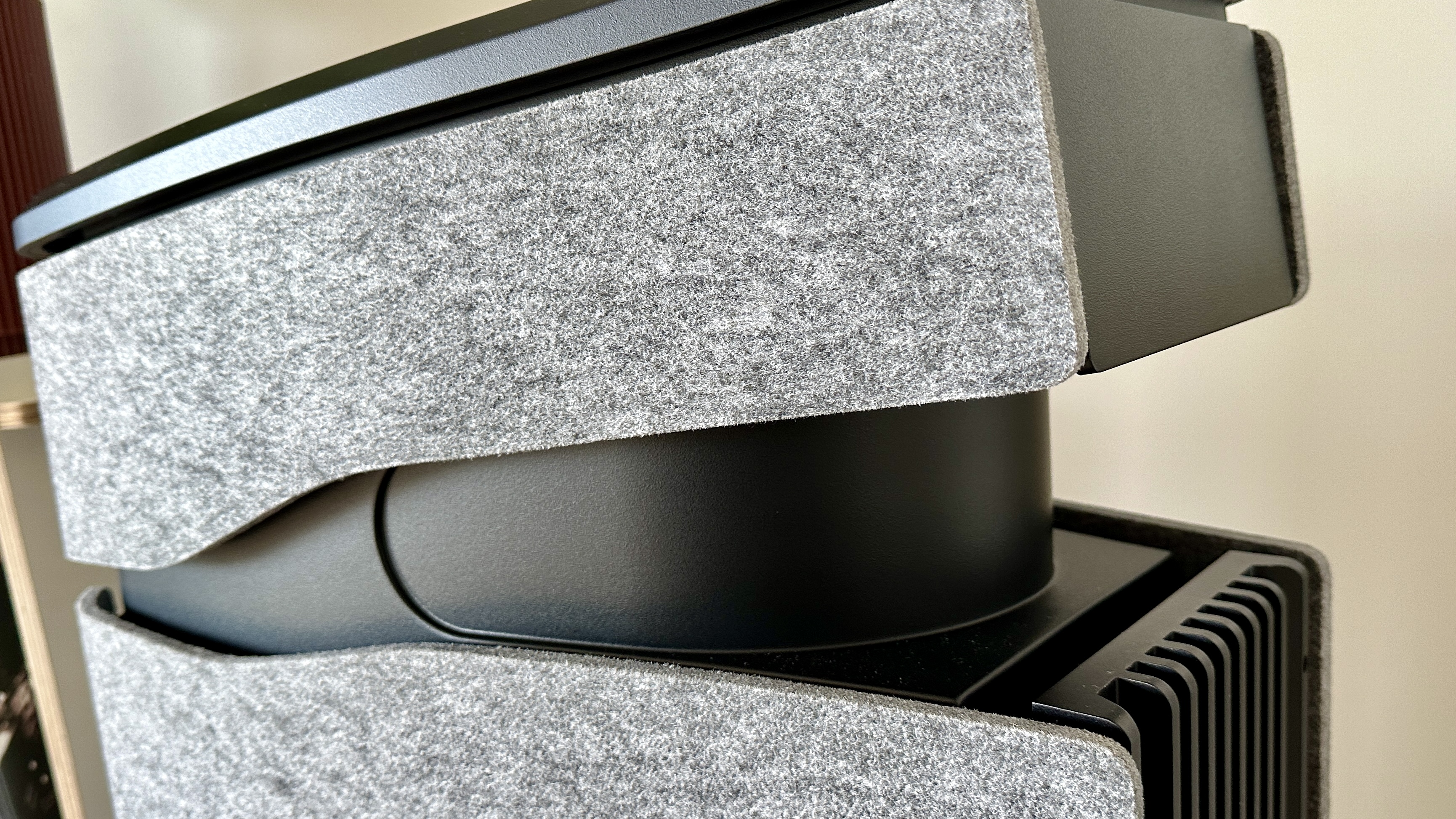
Focal Diva Utopia review: Price & release date
- Released October 2, 2024
- Priced $39,999 / £29,999 / AU$59,999
The Focal Diva Utopia launched on 2nd October 2024, and in the United Kingdom they cost a not-inconsiderable £29,999 while in the United States they will set you back an equally significant $39,999. The price in Australia is AU$59,999.
Need I say with undue emphasis that this is an awful lot of money for a wireless audio system in a pair of loudspeakers? That expectations in every respect – design, build, finish, specification, performance, you name it – are, inevitably, sky-high? That anything less than across-the-board excellence must count as a failure? No pressure then, Focal…
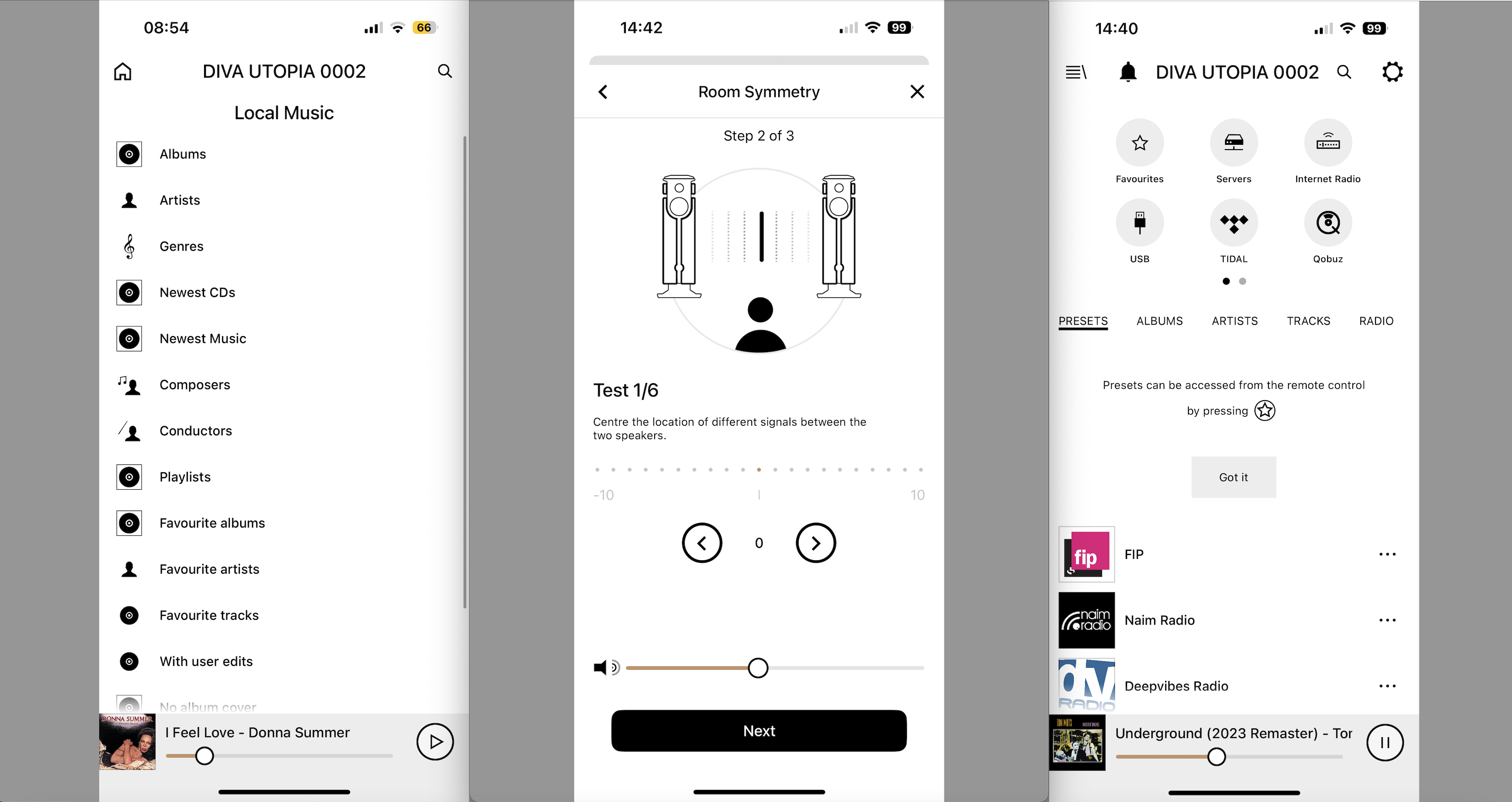
Focal Diva Utopia review: Features
- 800 watts of Class AB power in total
- 32bit/384kHz native DAC resolution
- Numerous analog and digital input options
Apparently Focal has, in conjunction with sister company Naim, been working on the Diva Utopia for the past five years. Obviously that’s quite a chunk of time for a product to be in development – but it’s sufficient time for a product’s feature-set to be specified without apparent compromise, too.
Each Diva Utopia is a three-way bass-reflex speaker. Near the top of the front baffle there’s a 27mm pure beryllium ‘M’-shaped inverted dome tweeter – it sits behind a red/black ‘double’ grille that appears to change colour and brightness as you move around the speaker. Beneath it there’s a 165mm ‘W’ mid/bass driver with tuned mass damper surround and a ‘neutral inductance circuit’ motor of the type Focal has been refining for quite some time.
On each of the speaker’s side panels there are a pair of 165mm ‘W’ bass drivers arranged in a push/push configuration. The output of this quartet is augmented by a downward-firing bass reflex port that vents against the fixed boundary of the speaker’s integrated aluminium plinth.
There’s a total of 400 watts of Naim Audio-designed Class AB amplification on board each speaker to power this driver array. The tweeter and the mid/bass driver get 75 watts each, and the remaining 250 watts is divided between the four bass drivers. Focal reckons this is an arrangement that’s good for a frequency response of 27Hz – 40kHz.
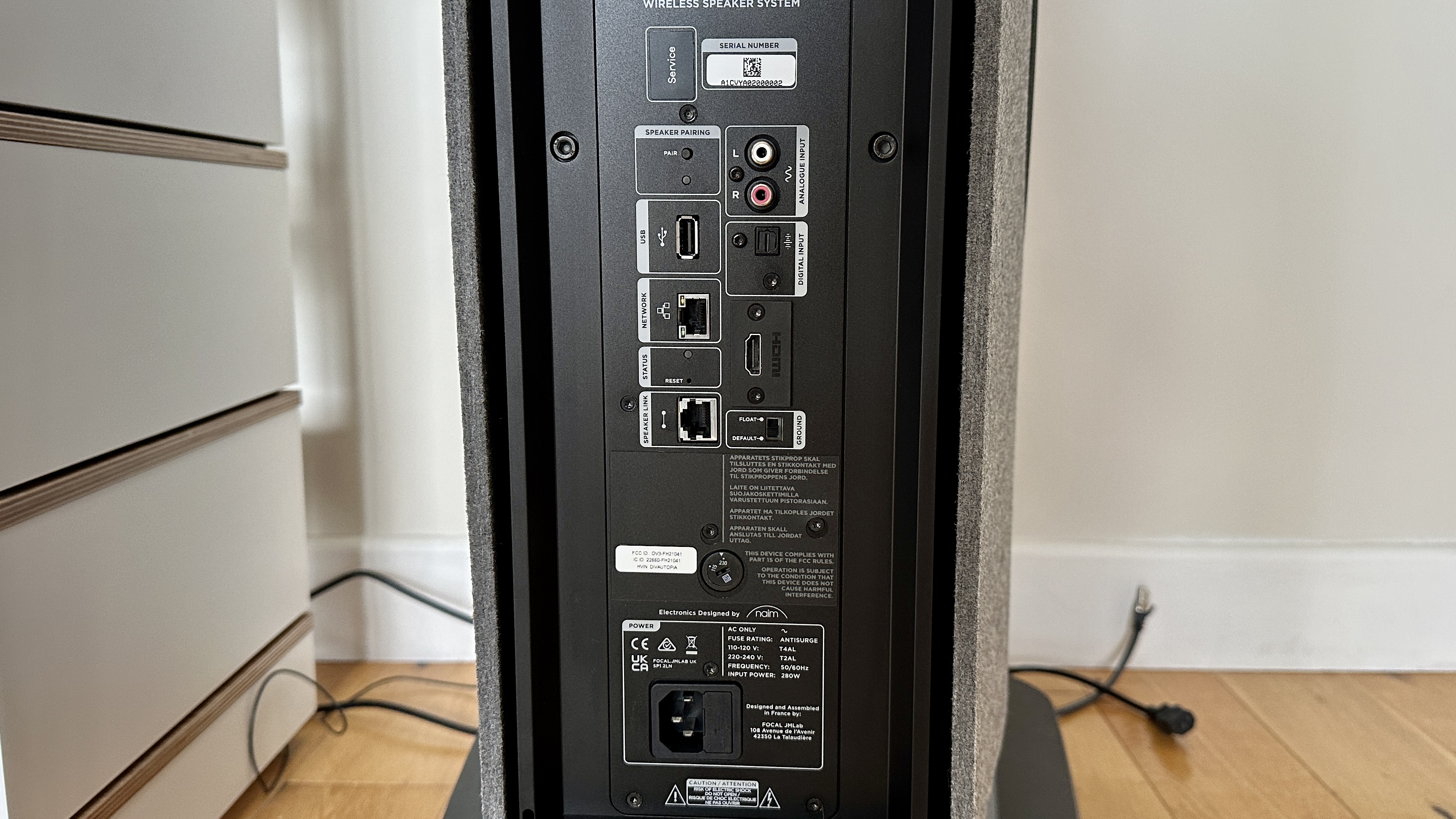
As is the way with the majority of products of this type, one speaker does all the heavy lifting where connectivity is concerned. So one of the Utopia Diva has just a mains power socket and an RJ45 socket for making a hard-wired connection to its partner on its rear panel, the other is taking care of business. It features the same mains power input and RJ45 system link, and also has the same substantial heat-dissipating radiator arrangement that’s more than a little reminiscent of Naim’s statement Statement amplification. But it also incorporates an RJ45 for Ethernet, a Type 2.0 USB-A slot, a digital optical input, a line-level stereo RCA input, and an HDMI eARC socket. With the possible exception of a phono input for use with an unamplified turntable, it’s difficult to know what else Focal might have included where physical connectivity is concerned.
Wireless stuff is handled by Bluetooth 5.3 with aptX Adaptive codec compatibility, and dual-band wi-fi. Wi-fi (or Ethernet, if you prefer) brings Apple AirPlay 2, Google Cast, Spotify Connect and TIDAL Connect into play – the Diva Utopia is UPnP-compatible, too, although it’s not Roon Ready. Internet radio is available, and both Qobuz, and QQMusic via QPlay (for Chinese customers) are also accessible via the dedicated control app. All incoming digital signals, whether wired or wirelessly received, are dealt with by a 32bit/384kHz DAC that’s also compatible with DSD128.
Focal has deployed UWB (ultra wide band) technology to ensure latency between the two speakers is negligible. When the speakers are connected wirelessly, resolution tops out at 24bit/96kHz – but use the supplied RJ45 cable to make a physical connection between the two and 24bit/192kHz can be yours.
Focal Diva Utopia review: Sound quality
- Deftly dynamic presentation
- Scale and muscularity combined with detail and insight
- Requires a fair bit of breathing space
Just imagine what a story it would be if the Focal Diva Utopia, with its remarkable looks, extensive specification and terrifying price-tag, didn’t actually sound all that good? What a story that would be…
But it’s a story that will have to wait for another day – because in the simplest terms, the Diva Utopia sounds bloody marvellous. It’s a profoundly accomplished, endlessly engaging and thoroughly enjoyable listen, a system that revels in any and every type of music, and that is seemingly capable of wringing the last drop of detail from a recording.
No matter if it’s decoding, amplifying and delivering an Amazon Prime Video stream of Nick Cave & The Bad Seeds’ Distant Sky via its HDMI eARC socket, dealing with a (pre-amplified) vinyl copy of Mary Lattimore’s And Then He Wrapped His Wings Around Me or giving the treatment to a TIDAL Connect stream of a 24bit/96kHz FLAC file of What Goes On by The Velvet Underground, the Focal system is is complete command of the material. It combines iron-fisted low-frequency behaviour, unarguable dynamic potency and a forensic level of insight that ensures you always feel like you’re getting a complete account of a recording – and at considerable scale.
Low-frequency presence is, unsurprisingly, significant. The system digs deep and hits hard, but loads bass information with an absolute stack of detail concerning tone and texture, and is so positive and straight-edged in its control that rhythmic expression is never a concern. It’s deft enough to skip through a complex double-bass part, muscular enough to attack a hip-hop drum pattern, dynamic enough to make the harmonic variations in a timpani obvious.
Above there, the midrange communicates in an absolutely explicit, torrential manner. No transient detail is too minor or too fleeting to escape it, and no singer has yet made a recording that can’t have the nuance of emotion, attitude and character of their performance teased out of it. At the top of the frequency range, the Focal is more than substantial enough to give treble sounds proper presence, detailed enough to make the gauge of, say, a cymbal obvious, and attacking enough to really sink its teeth into the brightest and/or splashiest high-end stuff.
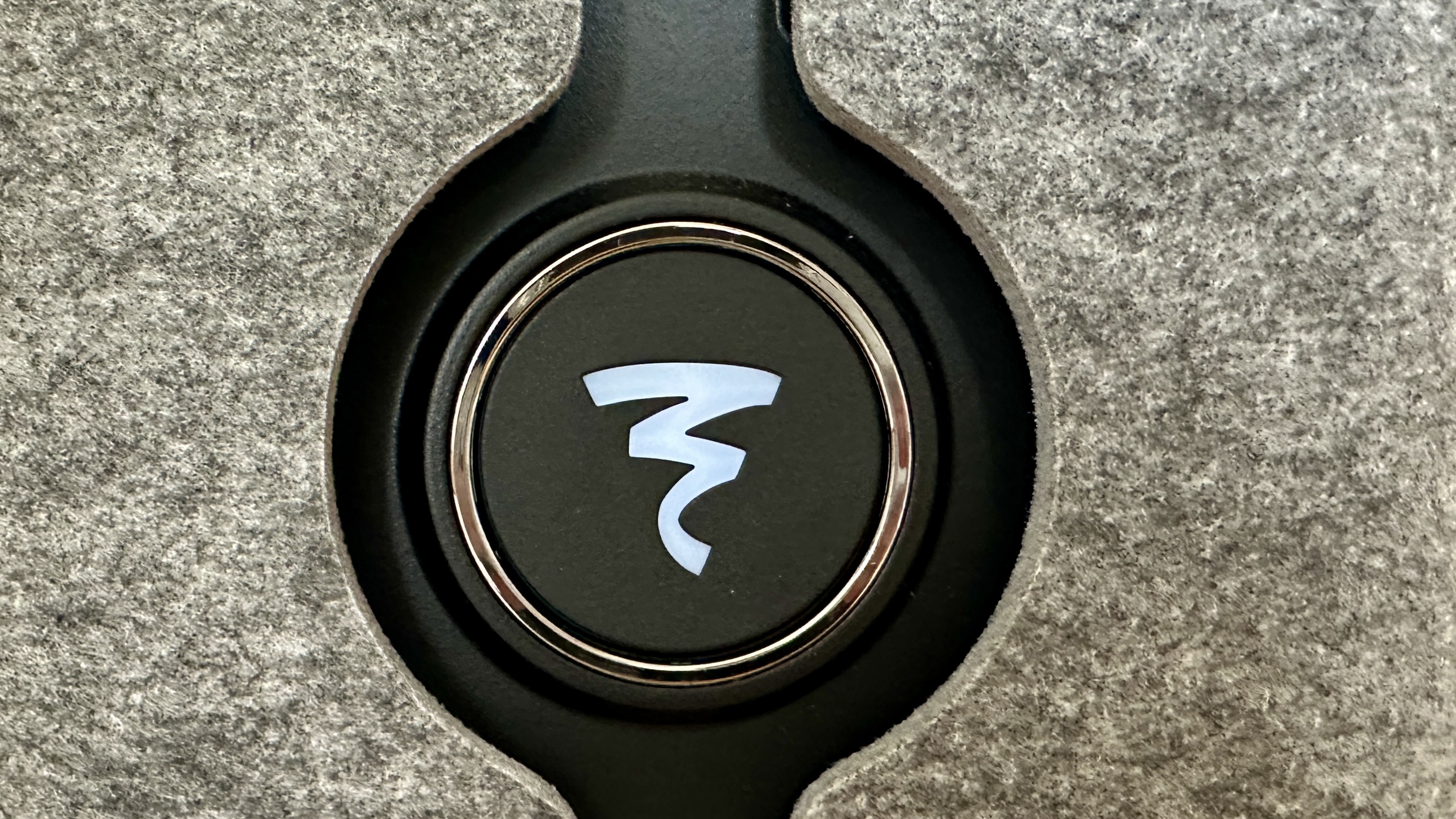
The tonal balance is carefully and convincingly neutral, and the crossover between the drivers is imperceptible. The entire frequency range hangs together as if it was being produced by a single driver, and there’s no understatement or overplaying of any particular area. The Diva Utopia is a naturalistic as they come where this sort of thing is concerned.
Dynamic headroom is superabundant, as seems only reasonable when you consider the sheer amount of power that’s on tap here. When Michael Tilson Thomas shifts the Cleveland Symphony Orchestra and Chorus into top gear during Orff’s Carmina Burana the sheer amount of drive and attack that the system can summon is almost shocking. But all of this barn-burning intensity is not at the expense of subtlety – when the going gets mild and contemplative, the Focal can cosset with the best of them. And no matter the specific circumstances, the soundstage the Diva Utopia creates is large, three-dimensional and entirely convincing. Even a full-scale orchestra with massed chorus enjoys sufficient elbow room.
Everything the system does, it does without seeming to make all that much of an effort. There’s an almost casual authority about the way it goes about things, a suggestion that ‘there’s plenty more where that came from’. I’m not sure if the Diva Utopia can be provoked into sounding in any way stressed or otherwise uncomfortable – all I know is I haven’t been able to do so. And believe me, I have tried.
It follows that downsides are few. In fact, it’s really only the amount of breathing space the system needs that is noteworthy. I’m going to go ahead and assume that anyone with 30 grand to spend on a couple of speakers has a fair amount of space in which to position them – but in a room that’s anything less than ‘really quite large’ the Diva Utopia can overwhelm. And that, really, is about the only note of caution I can sound.
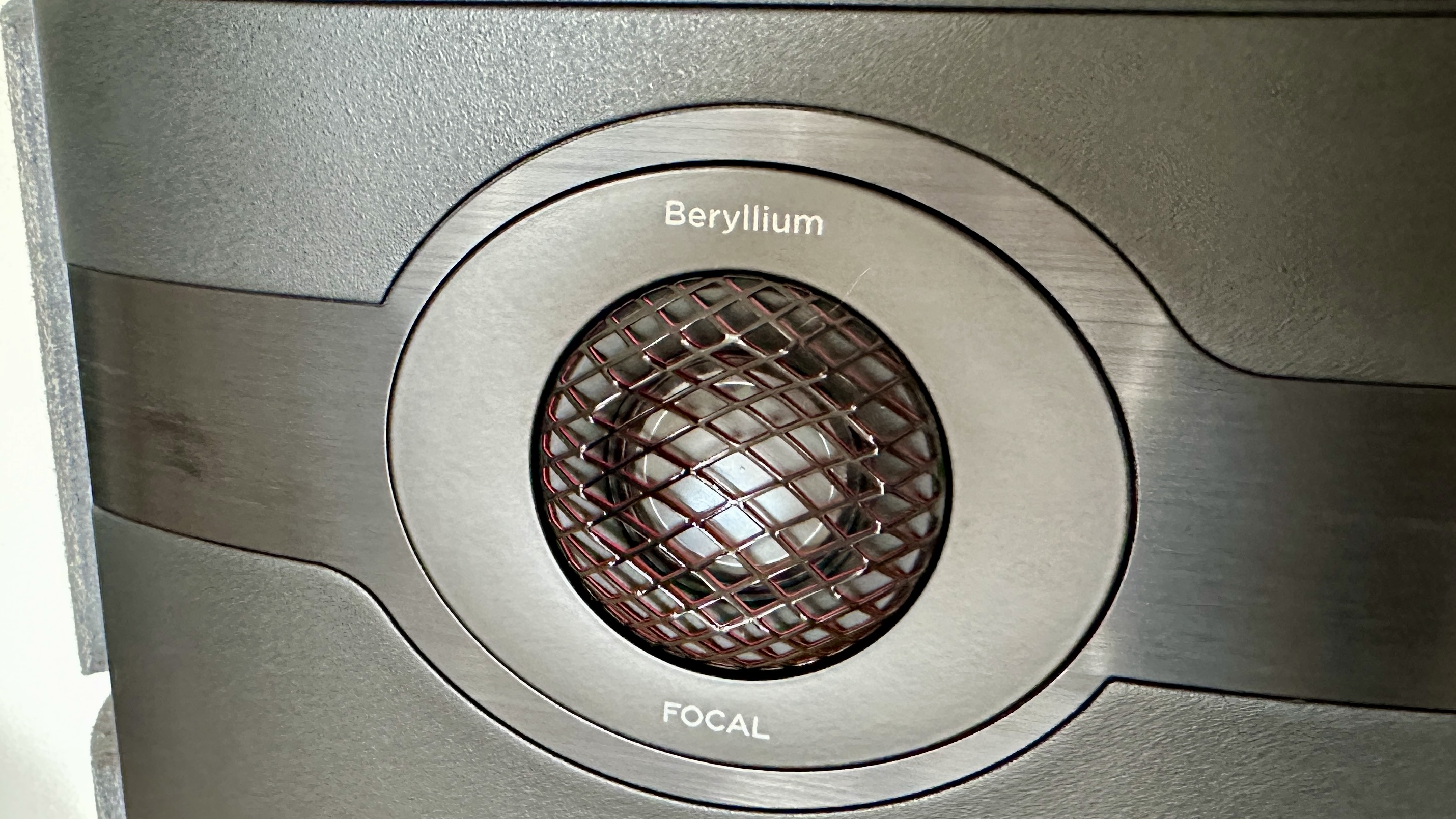
Focal Diva Utopia review: Design
- High-density moulded polymer cabinet
- Gray felt finish (with other colors to follow)
- Floor-spikes or castors
Each Diva Utopia loudspeaker is 121 x 42 x 56cm (HxWxD) and 64kg – and consequently is quite imposing. But while Focal has obviously designed this system for optimum performance, it hasn’t allowed the opportunity to inject a little visual drama into the ownership experience to pass it by.
The cabinets here are made from high-density moulded polymer, and are structurally reinforced to produce a rigid structure that rejects vibrations almost entirely. Each one stands on an injected aluminium base that is pre-fitted with castors – these can be swapped for chunky, high quality floor-spikes that are also supplied, along with discs they can stand in to protect your floor’s finish. The angularity of the cabinet, especially the top section that houses the tweeter, is a) recognisable to anyone who’s familiar with the Utopia range, b) dictated by sound acoustic principles, and c) more than a little reminiscent of an H.R. Giger creation.
Focal has finished these cabinets with a robust, tactile grey felt cloth – it combines, says the manufacturer, elegance and minimal environmental impact. Other colors are likely to be available in the future.
It’s certainly a point of difference from high-gloss colors or wood finishes, and it gives the speakers a slightly ethereal look. The division between the side panels (which also include contrasting grille covers for the side-firing bass drivers), where the obligatory illuminated ‘Focal’ logo sits proudly, is brilliantly consistent – Tesla could learn a thing or two about panel gaps from Focal, that’s for sure. The overall quality of the finish is basically flawless and, even if it’s not your cup of tea, you can’t deny that it makes the Diva Utopia look distinctive.
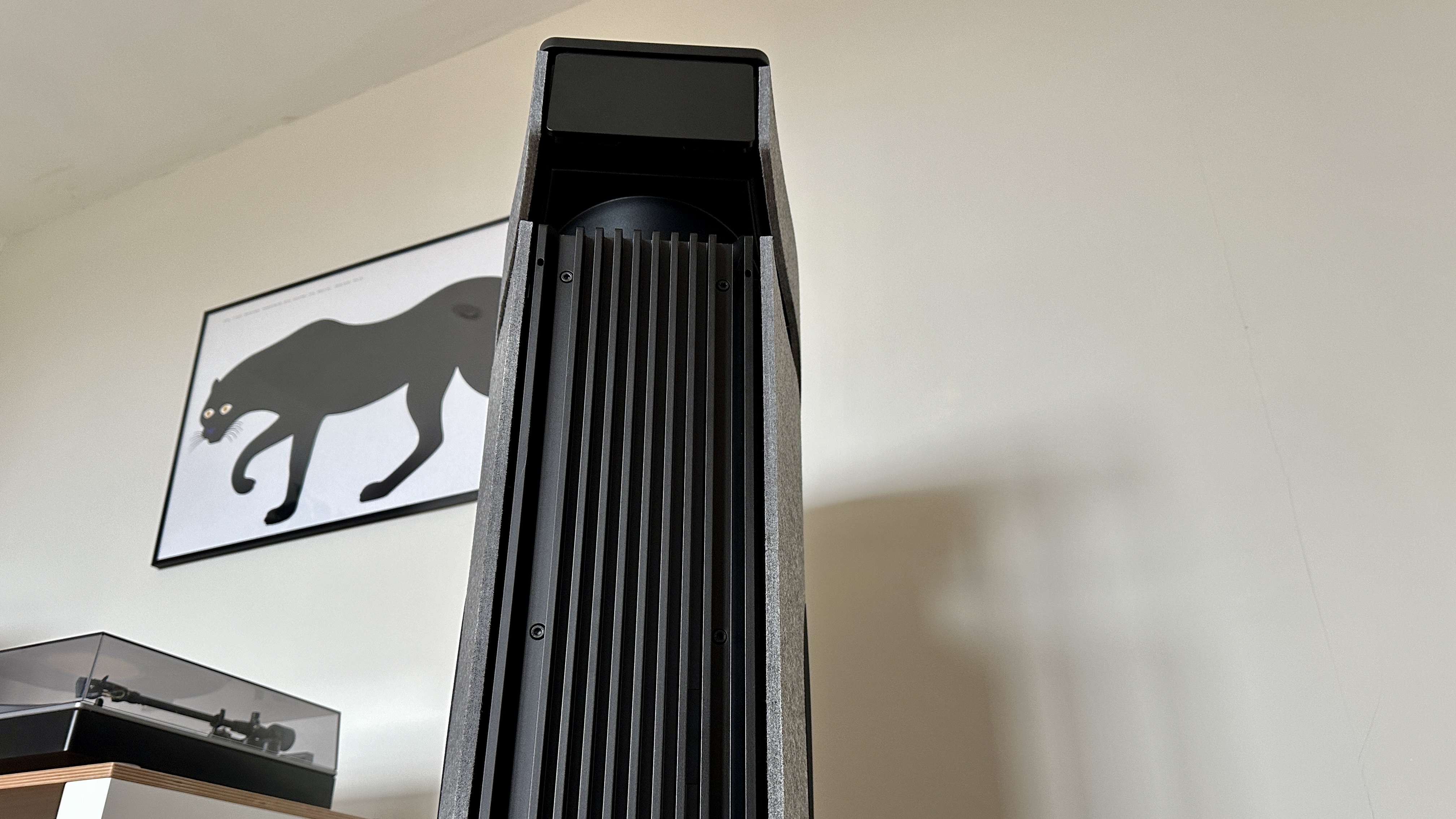
Focal Diva Utopia review: Setup and usability
- Focal & Naim control app
- Voice assistant-compatible
- Zigbee remote control handset
Obviously these are large, heavy loudspeakers. But Focal has gone to reasonable lengths to make installation and set-up as straightforward as possible.
The speakers arrive with the castors pre-fitted, and it’s actually quite straightforward to wheel them out of their necessarily large boxes using the little wooden ramp that’s inside. After that, it’s easy enough to get them positioned as you’d like (although if you decide to put them on the supplied floor-spikes, as you really should, you’ll need the help of at least one additional volunteer).
The system also ships with a ‘Zigbee’ remote control that will be familiar to anyone with experience of Naim electronics over the last decade or so. The Diva Utopia is also compatible with your preferred voice assistant – but it’s the Focal & Naim app where the real action is. As well as the usual stuff like saving some favourites and assigning presets, checking for firmware updates and what-have-you, it also features a comprehensive room correction routine into which the end user gets an unusual amount of input (although Focal’s assertion that it is ‘fun’ is, I am prepared to say here and now, a false alarm). It allows you to enable or disable specific inputs to keep the homepage nice and clean, trim the output level of specific inputs, and plenty more besides. The app was in ‘beta’ at the time of testing, but even in less-than-perfect shape it proves clean, logical, reliable and stable.
- Setup and usability score: 5/5
Focal Diva Utopia review: Value
You might argue that $39,999 / £29,999 for a wireless music streaming system can’t possibly represent value for money, and to be honest you won’t get much of an argument from me.
But what I would point out is that it’s possible to build a high-end music system of the more traditional type and spend way more money than this, that the Diva Utopia is an architectural talking-point as well as a superbly adaptable music system, and that quality like this where both industrial design and sonic performance are concerned seldom comes cheap.
On a pound-for-pound basis it’s difficult to make the case that you’re getting notable value here – but if you can afford it, I say go right ahead. I know I will if my numbers ever come up…
Should you buy the Focal Diva Utopia?
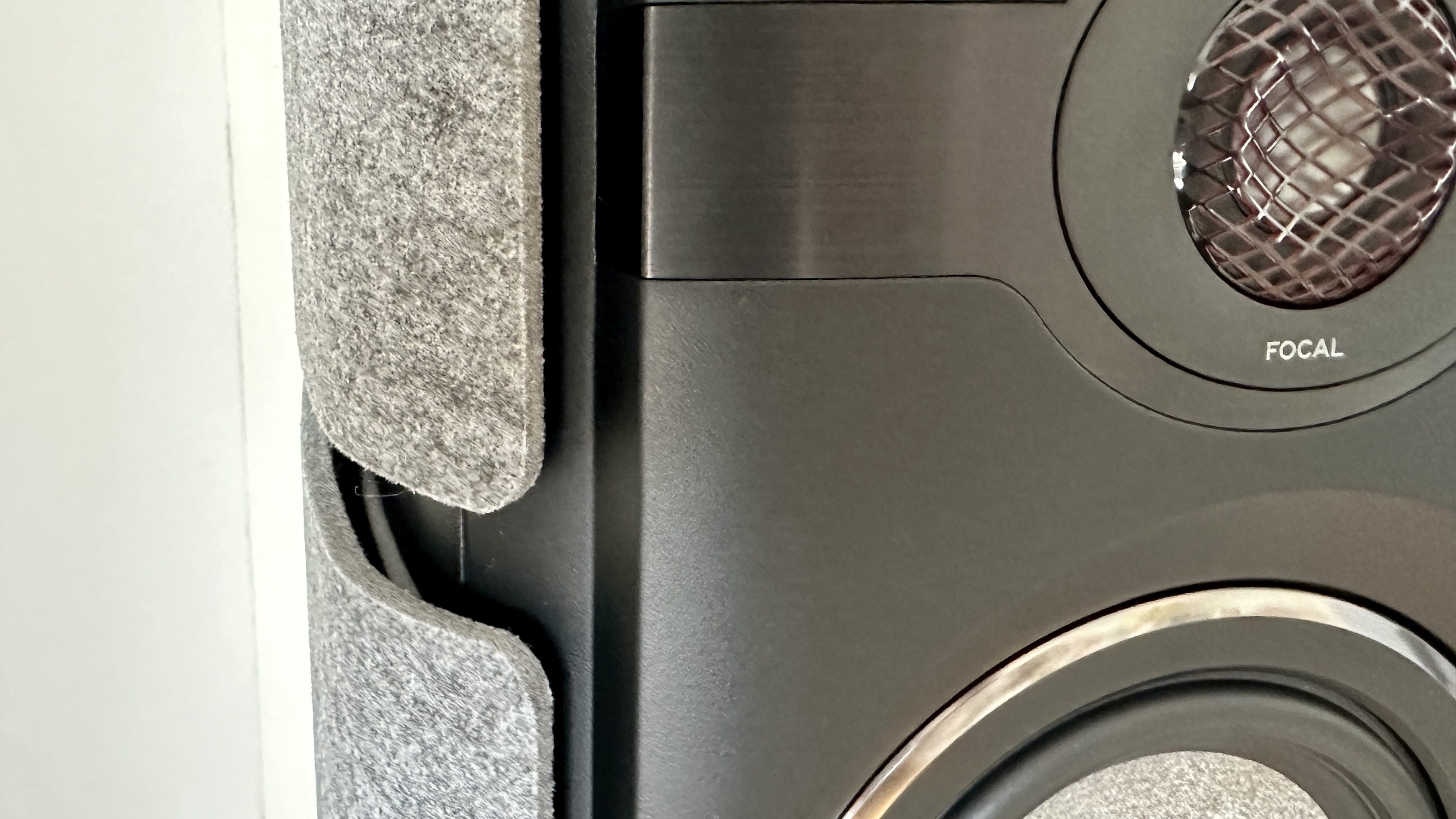
Buy it if…
Don’t buy it if…
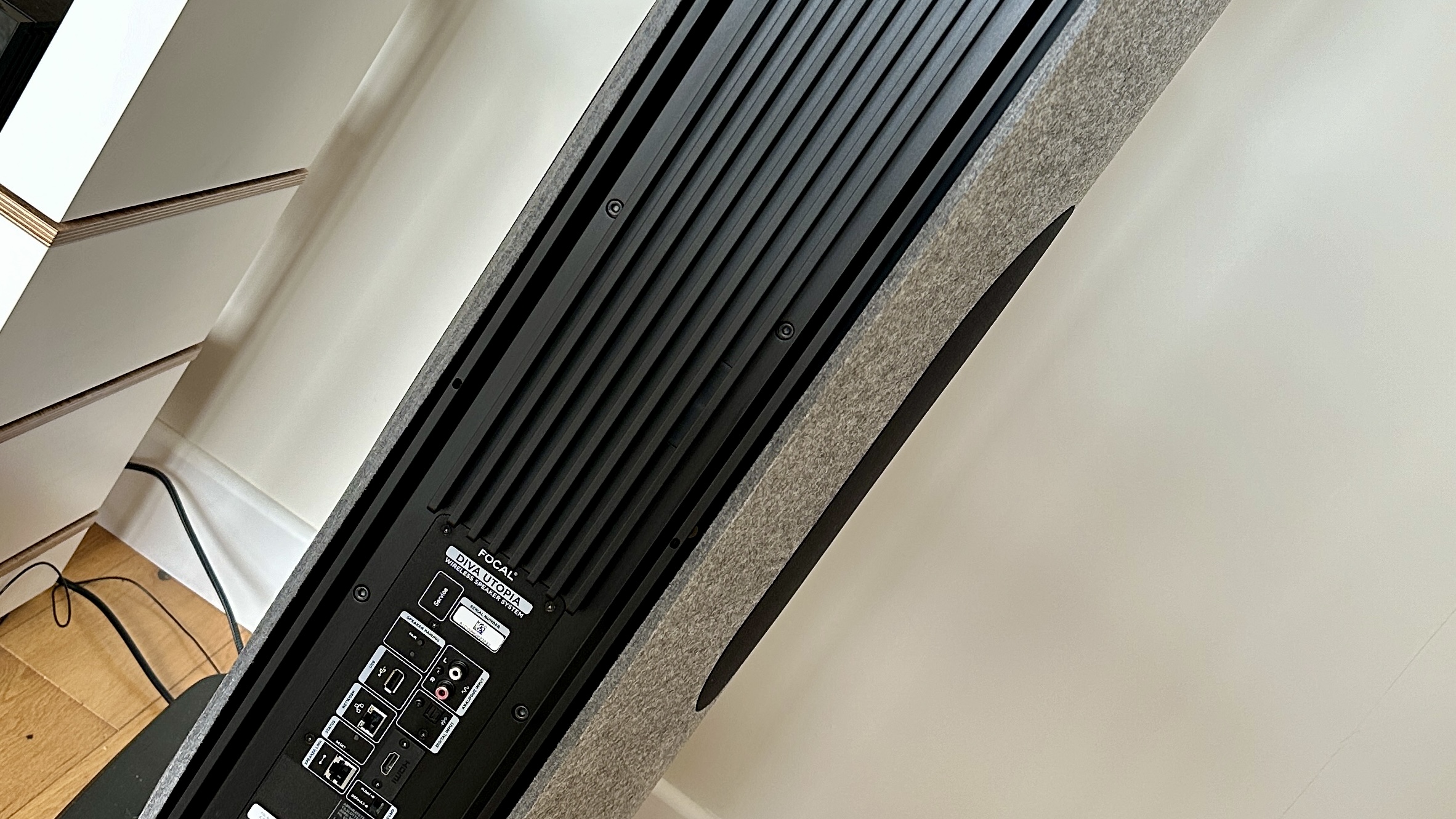
Focal Diva Utopia review: Also consider
As far as all-in-two music streaming systems are concerned, there’s not a lot of competition for the Diva Utopia at a similar sort of price – even the never-knowingly-underpriced Bang & Olufsen can only offer its Beolab 28 high-resolution wireless stereo speakers, and they’re around half the price of the Focal.
Of course, it’s possible to build a system that does much of what the Diva Utopia can do by checking out amplification, passive loudspeakers and a music streamer at around ten grand a pop – but that’s not going to have the same sort of visual impact or ergonomic tidiness of the Focal. The Diva Utopia, then, currently seems to be number one in a field of one…
First reviewed: October 2024
Read more about how we test at TechRadar

